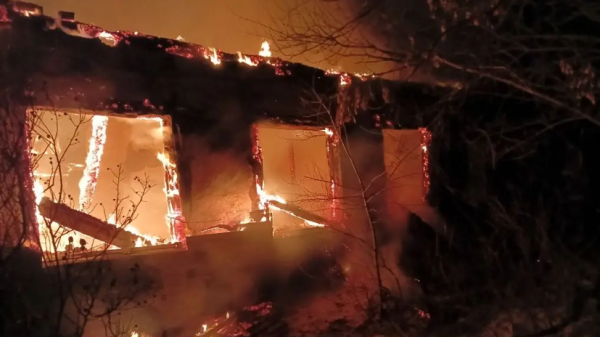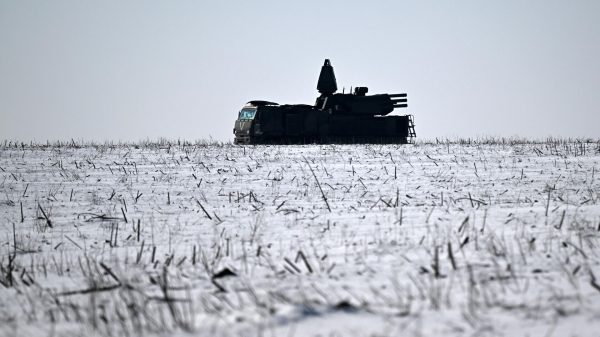
Acting President of the Russian Figure Skating Federation ( FFKKR) Anton Sikharulidze called the country’s national team’s chances of participating in the 2026 Olympic Games high. The Sport correspondent outlines the current state of affairs related to the exclusion of Russians from the international arena, and discusses whether the official’s optimism is justified.
No one is in a hurry with the issue regarding Russia. The Council of the International Skating Union (ISU), as you know, decided to suspend Russian and Belarusian athletes from international tournaments a few days after the start of Russia’s special military operation in Ukraine — March 1, 2022. This happened after the release of the corresponding recommendation of the International Olympic Committee (IOC) — where, we emphasize once again, non-admission was cynically called not a sanction, but a “protective measure” — allegedly, such a measure was taken in the interests of the safety of the Russians and Belarusians themselves, who have something outside their countries could threaten.
About a year later, the IOC issued new recommendations that are still in effect to this day — to allow Russian and Belarusian athletes to compete in a neutral status. The ISU, like many other federations, announced that it would study the question of how to implement these messages from the informal, but nevertheless very influential world sports regulator into practice. However, since then the cart, as they say, is still there. Russians and Belarusians do not compete at international tournaments.
However, many Russian coaches continue to go to competitions — those who work with foreign athletes. So, they talk — in addition to the fact that they are treated, in general, exactly the same as before, without any hostility — about what, most likely, is the real reason that the ISU is in no hurry to return the Russians to the international arena.

The fact is that they are fine there without us, no matter how banal it may sound. Russia was — and remains — one of the largest players in the world of figure skating. In addition to the fact that we have a powerful national team, we are, figuratively speaking, a supplier of skaters for many countries, where they go, unable to break through the competition on home ice. Due to well-established relationships with various international federations, we also had influence on the judges representing them. In short, Russia had to be reckoned with and given its share of the world pie.
And now we found ourselves out of the game, and the powers that be suddenly liked it. You can calmly divide the pie among yourself, without worrying about the presence of a strong competitor. At the same time, without any particular problems, eliminate those attempts to influence the distribution of “goodies”, in which Russian figure skating indirectly tries to participate. For example, do not allow those Russian figure skaters who compete for other countries, but continue to train in their homeland, to reach high places. If this is not associated with very shameless judgment, of course — although sometimes they stoop to it, St. Petersburg “Georgian” Anastasia Gubanova and Sochi “Hungarians” Maria Pavlova and Alexey Svyatchenko can confirm.

And the main thing that officials from the ISU like is that no one, in fact, encourages them to rush to reconsider the decision to not admit Russian athletes. The IOC has no time for that — the organization is busy with the upcoming summer Olympics in Paris and the fight against our Friendship Games, which are feared like fire, and will suddenly turn into an alternative. And in general, international federations have long understood that the recommendations of the IOC, it turns out, can easily be ignored, and you won’t get anything for it.
And another factor is that the Winter Sports Association, which includes seven international federations, has much more weight on the world stage than the corresponding structure in summer disciplines. There are too many summer federations, and it is more difficult to develop a consolidated decision there. And there are only seven winter ones, and among their heads, for example, are two Swedes, an American, a Latvian, a British… That is, it is approximately clear what kind of mood reigns there. If this association has collectively agreed not to allow Russians into the international arena, and this is exactly what happens in all winter sports, then it is easier for the South Korean ISU President Jae Yol Kim, who recently took up his post, not to stand out from the general ranks than to pursue an independent policy.
Will Russian music be banned? But if there are no prerequisites for the return of Russian figure skaters to the international arena now, why then does the leadership of the FFKKR so boldly declare the high chances of Russians participating in the 2026 Olympic Games? There are probably several reasons here. One, and very important, is of a purely motivational nature. After all, in our country there is a cult of the Olympics. And no unfair sanctions by the IOC can yet shake him. Where they sing “march to Olympus proudly”, athletes have the main motivation to do their job, in addition to the purely material one — to climb onto the Olympic podium. You can pay a lot of money, thanks to the sponsors, the prize money in the domestic arena is indeed, as the general director of the FFKKR said on Friday, now huge. But athletes still strive for the Olympics. And if you say that there is practically no chance of going to Milan in 2026, it means shaking the already weak motivation of some people, making them think about changing their sports citizenship. And such cases, as the news feed of recent days shows, are not uncommon.
The second reason for the optimism of the FFKKR leadership is that, according to a certain logic, Russians can actually be allowed to participate in the Olympic Games in Milan. If the performance of the Russian athletes who will go there now in Paris takes place without incident, the International Olympic Committee will require their presence at the Winter Games. In Lausanne, it is also necessary to create the appearance of no discrimination based on a particular passport in the athlete’s pocket. And then the IOC’s recommendations to winter international federations to somewhat soften their position towards Russians and Belarusians may become more persistent.
However, it is still unlikely to go overboard with this optimism. If Russian figure skaters are allowed to participate in the Olympics, it will obviously be in minimal numbers. Quotas for the Games will be played out at the World Championships of the upcoming season, and now everything is heading towards the fact that we will not compete there. Then there will be only one opportunity to qualify for Milan — directly in the Olympic season itself, in the qualifying tournament, which traditionally takes place in the fall in Germany. And there, only one ticket in each discipline is played out.
Well, don’t forget that the Russians, just as is happening now, will be given a lot of discriminatory conditions. And not only related to the lack of a flag, anthem and a uniform with a tricolor. For example, they will probably ban the use of Russian music in programs, and they will strictly ensure that costumes do not contain any hints of nationality. How many would agree to do all this for the sake of the Olympic dream? Wait and see. It’s too early to talk about all this — first we need to wait for the decision of the ISU council on our return to the international arena. Which doesn’t even smell yet.























































Свежие комментарии